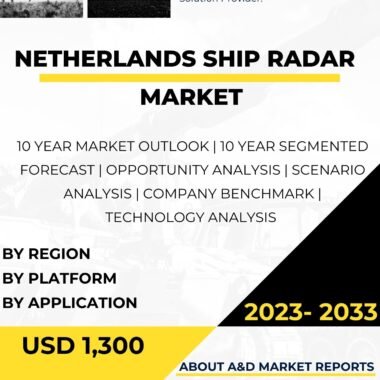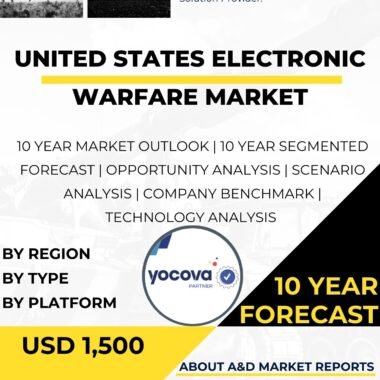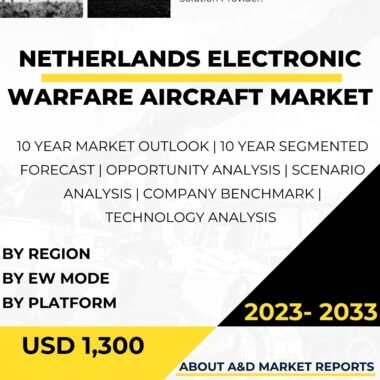Description
The Italy Ship Radar market is a critical and dynamic segment within the country’s maritime and defense industry, dedicated to providing advanced radar systems for ships to enhance situational awareness, navigation, and maritime security. Ship radars play a crucial role in modern maritime operations, enabling vessels to detect and track other ships, obstacles, and hazards in their vicinity. The Italy Ship Radar market reflects the nation’s commitment to maintaining cutting-edge technology and innovation in the maritime sector, as it strives to equip its naval and commercial vessels with state-of-the-art radars to ensure safe and efficient maritime operations.
Italy’s strategic location in the Mediterranean Sea and its extensive coastline underline the significance of having a reliable and capable ship radar capability. The Italy Ship Radar market is driven by the need to provide the Italian Navy and commercial fleet with radar systems that offer high-resolution scanning, target tracking, and weather monitoring capabilities.
The Italy Ship Radar market encompasses a wide range of radar technologies, including X-band and S-band radars, which are commonly used for ship applications. These radars can be installed on various types of vessels, ranging from large naval ships to smaller patrol boats and commercial vessels.
One of the key players in the Italy Ship Radar market is Leonardo S.p.A., a major Italian aerospace and defense company. Leonardo specializes in developing and manufacturing advanced radar systems for naval applications. The company’s expertise in ship radar technology exemplifies Italy’s capabilities in the maritime and defense industry.
The Italy Ship Radar market also benefits from collaborations with international radar manufacturers and research institutions. Joint development programs and technology transfer initiatives foster innovation and enhance Italy’s competitiveness in the global market for ship radar systems.
The Italy Ship Radar market faces several challenges and opportunities. One of the primary challenges is the need to continuously innovate and improve ship radar technologies to meet evolving maritime requirements. As the maritime domain becomes more complex and congested, Italy’s ship radars must keep pace with advancements in radar technology to ensure effective surveillance and threat detection.
Additionally, ship radars must address the challenge of detecting and tracking small, low-profile, and non-cooperative targets, such as small boats and unmanned vessels. Improving radar resolution and target discrimination capabilities is crucial to enhance maritime security and prevent potential threats.
Moreover, the Italy Ship Radar market must address budget constraints while maintaining operational readiness and capability. Investing in advanced ship radar systems and associated equipment requires significant financial resources, and the Italian government must carefully allocate maritime and defense spending to ensure the effectiveness of its naval fleet.
Despite these challenges, the Italy Ship Radar market presents numerous opportunities for growth and innovation. The increasing trend towards multi-function and phased array radars offers new possibilities for ship radar solutions. Integrating multiple radar functions, such as surveillance, navigation, and weather monitoring, into a single platform can enhance efficiency and reduce installation space on ships.
Moreover, the export potential for advanced ship radar systems enables Italy’s maritime and defense industry to expand its market reach and forge international partnerships. Collaboration with friendly nations in joint development programs can lead to technology transfer and expertise exchange, bolstering Italy’s position as a reliable supplier of advanced ship radar systems to global markets.
The growing emphasis on unmanned and autonomous vessels offers opportunities for Italy to develop cutting-edge capabilities in ship radar technology. Integrating radars with unmanned surface vessels (USVs) and autonomous boats can enhance situational awareness and expand the scope of maritime surveillance.
Furthermore, the use of advanced materials and manufacturing techniques in ship radars offers opportunities for Italy to develop compact and high-performance radar systems. Advancements in additive manufacturing and composite materials can enhance radar performance and reduce the radar’s overall weight and size.
In conclusion, the Italy Ship Radar market is a critical and dynamic segment within the country’s maritime and defense industry. The demand for advanced ship radar systems arises from Italy’s commitment to maintaining a reliable and capable ship radar capability and ensuring safe and efficient maritime operations. Ship radars play a crucial role in modern maritime operations, enabling vessels to detect and track other ships, obstacles, and hazards in their vicinity. By addressing challenges and embracing opportunities, Italy’s maritime and defense industry can continue to deliver state-of-the-art ship radar systems that contribute to the nation’s maritime security, safety, and technological advancement. Collaboration with domestic and international partners, investments in research and development, and the integration of cutting-edge technologies are essential for the Italy Ship Radar market to thrive and maintain a competitive edge in the global maritime and defense landscape.




